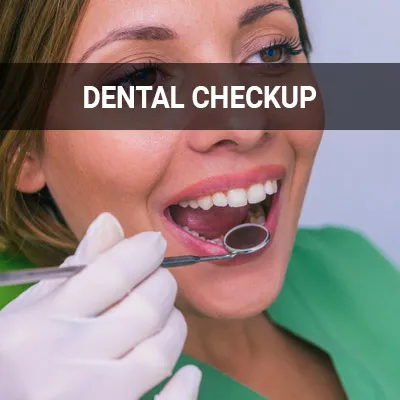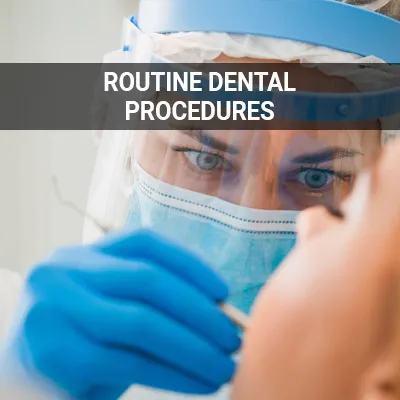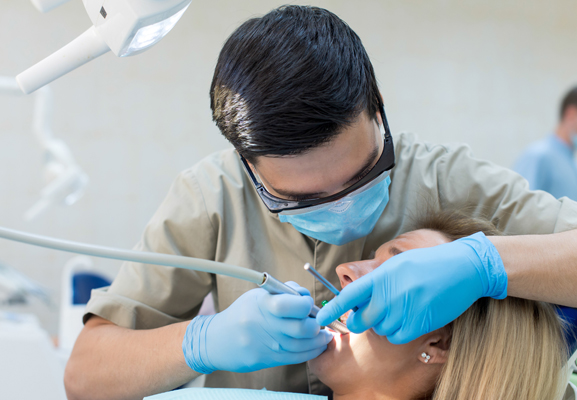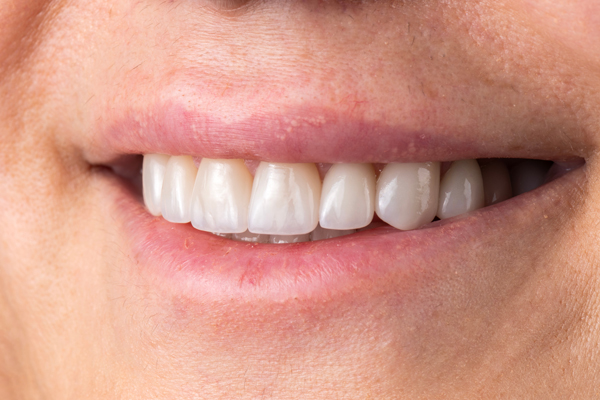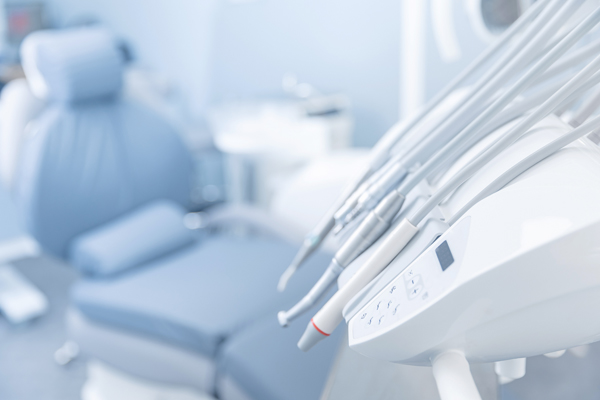Dental Anxiety Charlotte, NC
Solutions to dental anxiety come in many forms. When left untreated, many dental problems only get worse. We can help empower patients with dental anxiety to take the necessary action to treat their underlying conditions.
Solutions to dental anxiety are available at Randolph Dental Care in Charlotte and the surrounding area. Fear should never get in the way of your health. Call us at (704) 366-3622 to learn more and schedule an appointment today.
Understanding Dental Anxiety
Dental anxiety, also known as dental phobia, is a condition in which patients have a debilitating fear of the dentist. People with dental anxiety are aware that their fear is irrational, but have little to no means of managing it. They may be so panic-stricken by the prospect of seeing the dentist that they will only go when forced by extreme pain. Other common signs of dental anxiety include:
- Escalating feelings of nervousness in a dentist’s waiting room
- Feelings of intense unease at the thought of a dentist placing objects in the mouth during treatment
- Physical reactions at the thought of visiting the dentist
- Trouble sleeping the night before a dental appointment
At times, dental anxiety may get severe enough to be considered pathological. Patients who find that their dental anxiety severely impedes their normal functioning may benefit from psychiatric treatment.
“People with dental anxiety are aware that their fear is irrational, but have little to no means of managing it.”
Causes of Dental Anxiety
Patients of all ages and backgrounds can have dental anxiety. A multitude of factors may contribute to someone's unease at the prospect of being in the dentist's chair, including but not limited to fear of anesthesia, fear of injections, fear of pain, feelings of embarrassment, and feelings of helplessness.
All of the above are valid reasons to be anxious. Still, they do not have to overtake a patient's dental experience. Patients should be open and honest with their dentist about their anxieties, as this is the first step to phobia management. At Randolph Dental Care, we believe communication is key to a successful dentist-patient relationship.
“Patients should be open and honest with their dentist about their anxieties, as this is the first step to phobia management.”
Coping with Dental Anxiety
Dealing with a dismissive dentist may only make the problem worse. Therefore, the first step to managing dental anxiety is finding the right dentist. Patients should also ask office staff about any recommended coping strategies and agree on a signal to let the dentist know if they need to take a break.
Mindfulness techniques can also help. Patients may want to try breathing exercises or doing body scans while in the dentist's chair. Others may benefit from distracting themselves by doing things like wearing headphones or occupying their hands.
Additionally, patients should let the dentist know if they are particularly sensitive to pain, even with local anesthesia. There is no need for patients to feel embarrassed about asking questions or being open about their fear. This is the only way to develop a truly individualized plan to attack one's dental anxiety.
“There is no need for patients to feel embarrassed about asking questions or being open about their fear.”
Check out what others are saying about our dental services on Yelp: Dental Anxiety in Charlotte, NC
Sedation & Dental Anxiety
Some patients with more severe dental anxiety may require more intensive management measures. These include:
- Relative Analgesia: Also known as “laughing gas,” relative analgesia consists of patients receiving a combination of oxygen and nitrous oxide through a mask fitted to their face. This treatment is quick to take effect and also quick to wear off. Patients remain awake but feel relaxed for the procedure.
- Anxiety Medication: Typically, anxiety medication for dental anxiety comes in the form of a pill. It may be prescribed either by a dentist or a doctor. The patient will take a single, short-acting dose about one hour before their dental appointment.
- Conscious Sedation: Conscious sedation is a form of intravenous (IV) sedation administered either by a sedation dentist or an anesthetist. Patients under conscious sedation may drift off into a light sleep, making this known as “twilight sedation.”
- General Anesthesia: General anesthesia is the most intensive form of sedation, administered through a combination of IV medication and inhaled gases. Patients are put fully to sleep and will require pre- and post-operative visits.
Not all forms of sedation are appropriate for everyone or every dental procedure. Our qualified team works closely with our patients to take the proper measures to provide the most comfortable experience possible.
“Some patients with more severe dental anxiety may require more intensive management measures.”
Questions Answered on This Page
Q. What causes dental anxiety?
Q. How can I cope with dental anxiety?
Q. Can I be sedated for my dental anxiety?
Q. What is dental anxiety in children?
People Also Ask
Q. What is the importance of routine dental procedures?
Q. What coping with dental anxiety and phobia strategies are available?
Q. What other resources are available to me while searching for a new dentist?
Q. Where can I learn more about my dental diagnosis and treatment?
Dental Anxiety in Children
Dental fear and anxiety are most common in young children, with an increased prevalence in children aged 7 to 9. The study found that children with dental anxiety or phobia were more likely to acquire new carious lesions, experience toothaches, and require extractions. Parents play an important role in keeping children calm and helping them understand the importance of oral health. Avoid sharing too many details about their treatment or what they should expect.
Pediatric and family dentists are especially trained in explaining dental procedures in a calm, friendly, and simple manner. They can also provide certain strategies that they find works for their young patients. A kid-friendly dentist usually informs children about dental tools and injections and often lets them touch safe ones to ease their discomfort. Parents of children with dental anxiety or phobia should relay their concerns with the dentist on the first visit to keep them aware for all subsequent visits.
“…children with dental anxiety or phobia were more likely to acquire new carious lesions, experience toothaches, and require extractions.”
Frequently Asked Questions
Q. How can dentists help with anxiety?
A. Dentists who understand anxiety use simple techniques to keep their patients calm during treatment. For example, they may inform them about what they are feeling, will be feeling soon, and for how long. They take frequent breaks and ask the patient for permission to continue or if they would like to stop completely. They can also adjust anesthesia levels to keep the patient comfortable even after the procedure.
Q. How is severe dental anxiety treated?
A. Severe anxiety or phobia, dental or otherwise, should be properly diagnosed and treated by a certified psychologist as they can be a result of another mental disorder or condition. Also, dentists have limited training in treating dental anxiety and will only use the techniques they know. We may refer patients to a psychologist or prescribe anti-anxiety medications as needed.
Q. How common is dental anxiety in children and adults?
A. According to a 2014 study, "Dental anxiety, or dental fear, is estimated to affect approximately 36% of the population, with a further 12% suffering from extreme dental fear." Dental anxiety affects people of all ages and backgrounds for various reasons.
Q. How do you know if you have dental anxiety?
A. The most common symptoms of dental anxiety include fear or failure of visiting a dentist, sweating, racing heartbeat, low blood pressure, crying, and withdrawal. There is a long list of common symptoms that patients may also experience.
Q. Why do I have dental anxiety if I have not experienced any pain or trauma in the past?
A. Dental anxiety can stem from a variety of different factors and can arise at any time during our lives. Some patients acquire dental anxiety as a result of a new dentist, past experiences of a friend or family member, or associated fear from online content about a procedure. In most cases, this is a mild or singular form of anxiety.
Dental Terminology
Helpful Related Links
- American Dental Association (ADA). Glossary of Dental Clinical Terms. 2024
- American Academy of Cosmetic Dentistry® (AACD). Home Page. 2024
- WebMD. WebMD’s Oral Care Guide. 2024
About our business and website security
- Randolph Dental Care was established in 2016.
- We accept the following payment methods: American Express, Cash, Check, Discover, MasterCard, and Visa
- We serve patients from the following counties: Mecklenburg County
- We serve patients from the following cities: Charlotte, Matthews, Huntersville, Fort Mill, and Pineville Mint Hill
- Norton Safe Web. View Details
- Trend Micro Site Safety Center. View Details
Back to top of Dental Anxiety



